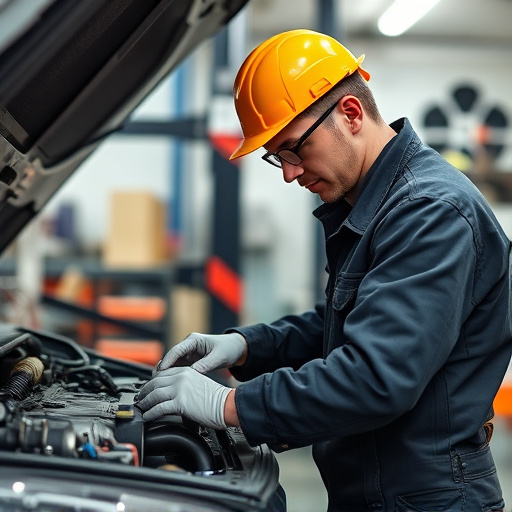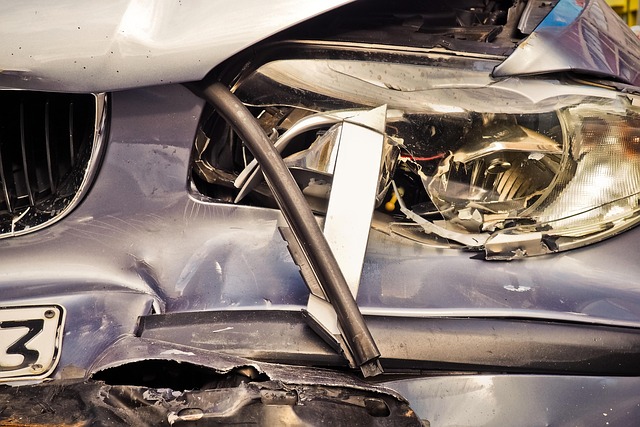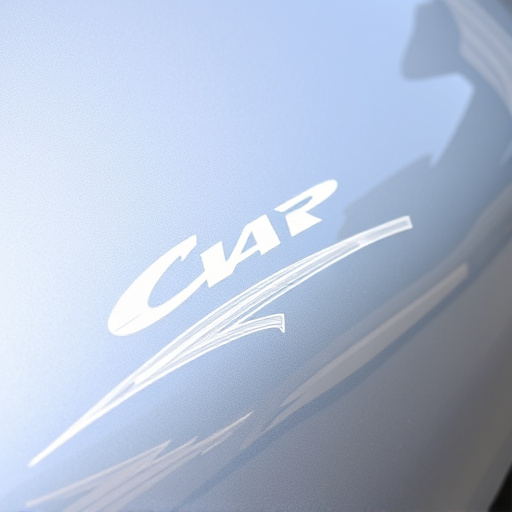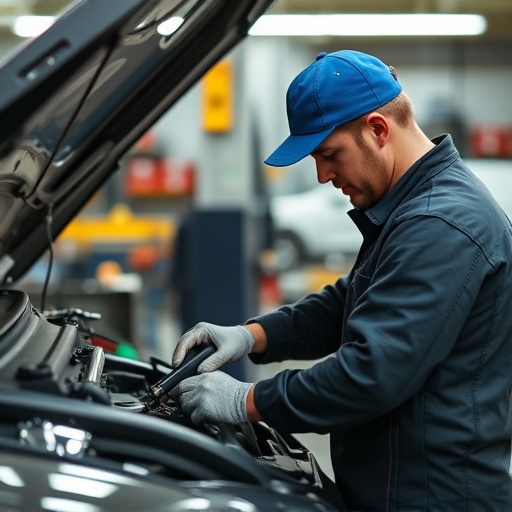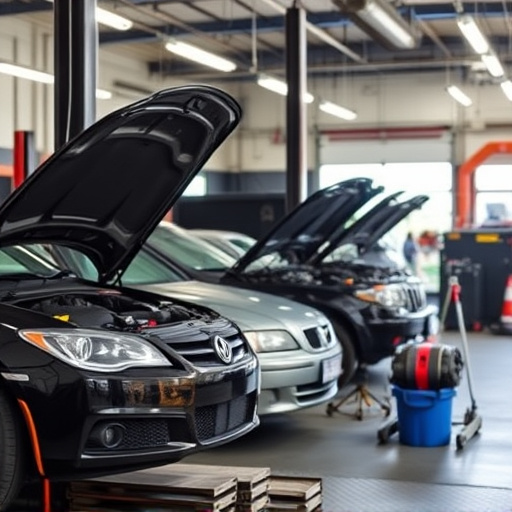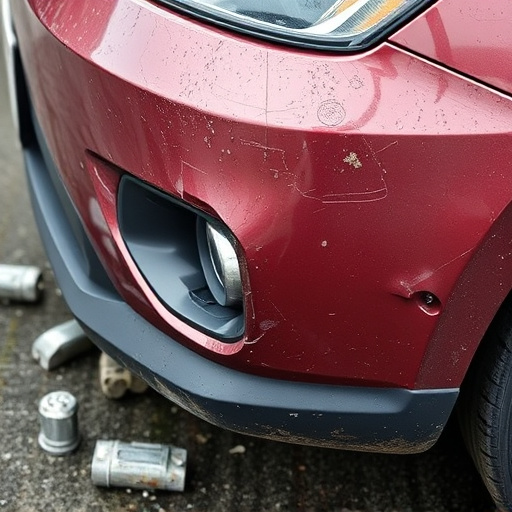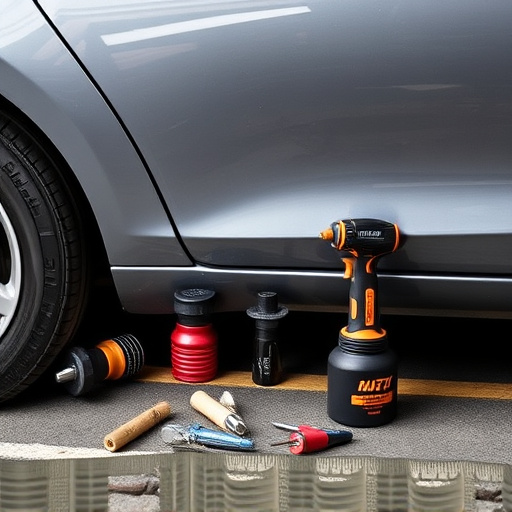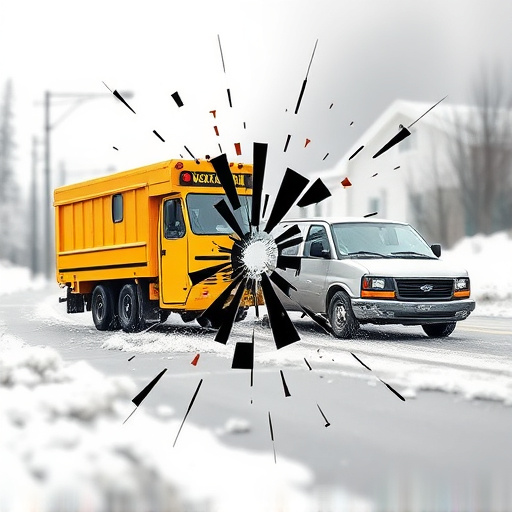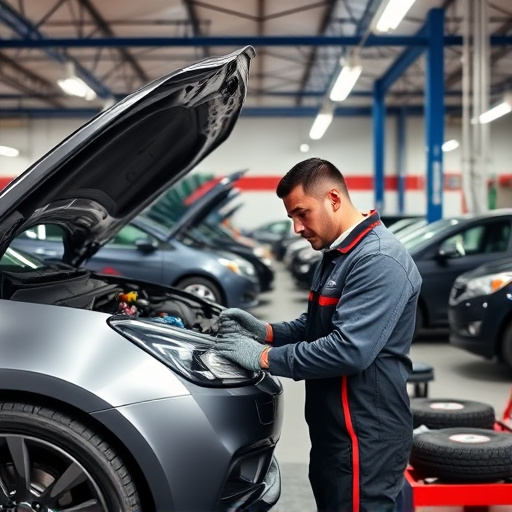Delay concerns in collision repairs stem from time-consuming preparation, limited access to equipment and skilled technicians, and stringent environmental compliance standards. Non-compliance can lead to fines and legal repercussions, emphasizing the importance of adhering to regulations, especially for classic car restoration. Forward-thinking shops embrace digital transformation and staff training to streamline processes, reduce delays, and maintain environmental stewardship while providing timely service.
In the fast-paced world of automotive repair, delays in collision services can significantly impact both business operations and environmental compliance. This article delves into the critical issue of delay concerns in collision repair, exploring their causes and consequences. We examine the environmental impact of non-compliance with standards, offering practical strategies to streamline processes and ensure adherence. By understanding these factors, collision centers can enhance efficiency, reduce ecological footprints, and maintain high service quality.
- Understanding Delay Concerns in Collision Repair
- Environmental Impact: Non-Compliance Consequences
- Strategies to Streamline and Adhere to Standards
Understanding Delay Concerns in Collision Repair

Collision repairs are a complex process that requires precision and adherence to strict environmental compliance standards. Delay concerns in collision repair can arise from various factors, each impacting the overall efficiency and quality of the work. One of the primary delays stems from the preparation phase, where vehicles undergo meticulous assessments to identify damage, create detailed repair estimates, and source necessary parts. This initial step is crucial but often consumes significant time, especially for complex repairs involving structural damage or intricate dent removal.
Additionally, the availability and lead times of specialized equipment and trained technicians play a pivotal role in delay concerns collision repair. Modern automotive repair demands advanced tools for precise measurements, spot-welding, and paint matching to ensure flawless results. The scarcity or unavailability of these resources can significantly slow down the entire process, affecting not just dent repair but also scratch repair and more intricate structural work. Effective project management and clear communication between stakeholders are vital to mitigate these delays, ensuring timely completion without compromising compliance standards.
Environmental Impact: Non-Compliance Consequences
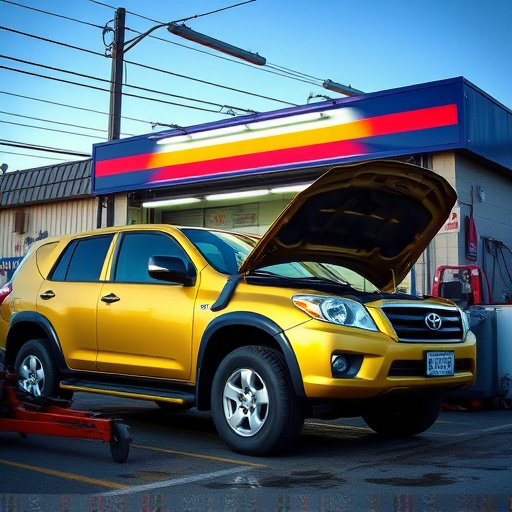
The environmental impact of collision repairs cannot be overlooked, especially when delays occur. Non-compliance with environmental standards can have severe consequences for auto repair facilities and businesses. The delay concerns collision repairs often lead to are significant. Failure to adhere to regulations regarding waste disposal, emissions control, and the use of eco-friendly materials can result in hefty fines and legal repercussions. These standards exist to protect not just the environment but also public health and safety.
For instance, a Mercedes Benz repair shop that delays or bypasses proper procedures for disposing of hazardous auto fluids or old car bodywork could face strict penalties. Classic car restoration enthusiasts and professionals must be particularly mindful of these regulations due to the potential for using rare materials and ancient techniques that might not always align with modern environmental compliance standards.
Strategies to Streamline and Adhere to Standards
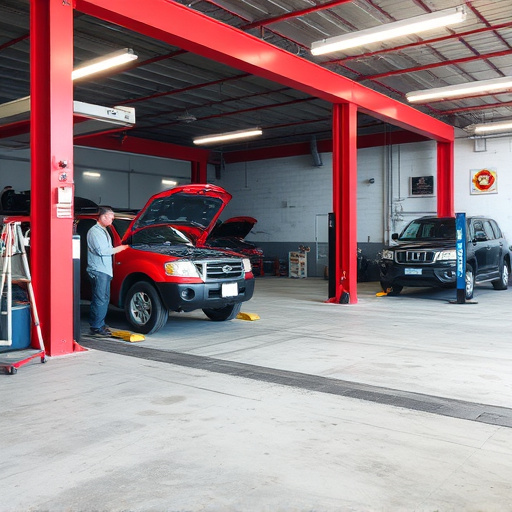
In an industry where timely service is paramount, collision repair and environmental compliance standards often present delay concerns for auto body shops. To mitigate these challenges, forward-thinking shops are adopting innovative strategies. Digitalization plays a pivotal role; implementing digital systems streamlines processes from estimate generation to parts ordering, reducing paperwork and human errors. Additionally, these technologies enable real-time tracking of inventory and work in progress, ensuring materials are readily available for timely repairs.
Training staff on the latest environmental regulations is another effective approach. Staying current with standards related to waste disposal, air quality, and emissions control minimizes non-compliance risks. Regular audits and internal checks further fortify adherence to these requirements, allowing auto body shops to maintain their operational efficiency while meeting or exceeding industry standards for both auto body repairs and environmental stewardship.
Delaying collision repair not only impacts vehicle restoration but also poses significant environmental compliance risks. By understanding the root causes of delay, implementing streamlined processes, and adhering to stringent standards, automotive facilities can ensure efficient operations without compromising ecological integrity. Embracing strategic solutions fosters both timely repairs and sustainable practices in the face of growing environmental regulations.
